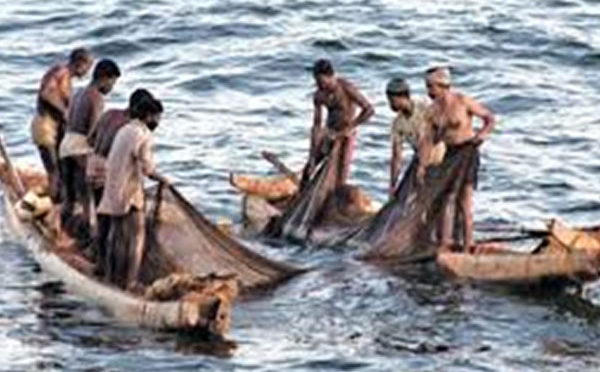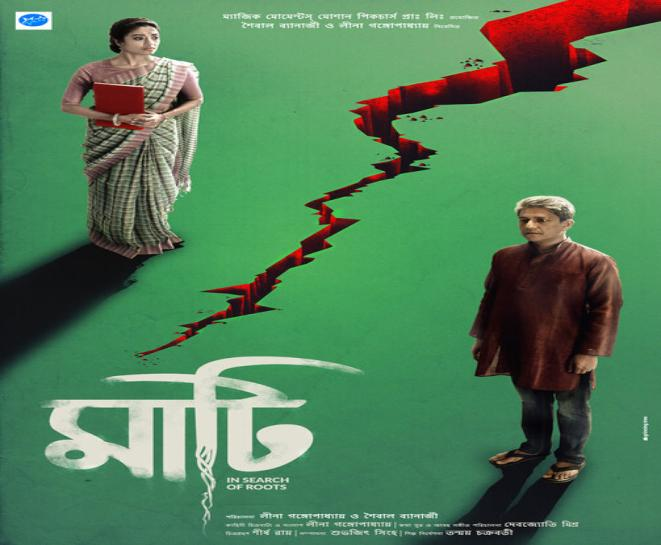Fishermen of the Palk Strait: Future of the India-Sri Lanka Fishing Conflict
Posted on : February 22, 2021Author : Sagnik Sarkar

The fisheries conflict in the Palk Bay, a narrow strip of water between India and Sri Lanka, has extended for decades now, with four fishermen from the Ramanathapuram district of Tamil Nadu being the latest to fall prey to it. Apparently hit by a Lankan Naval Craft and losing their lives, this incident prompted India to lodge a strong protest, saying Colombo should take the necessary steps to prevent the recurrence of such incidents in the future.
These four fishermen were reported missing on the 19th of January 2021, after they had gone out fishing on their mechanized boats along with many other vessels from the same area. The Sri Lankan Navy initially said an Indian boat, with four fishermen on board, sank when patrol vessels sought to apprehend it with other fishing boats that were allegedly poaching in Sri Lankan waters.
It was in the 1960s when the Government of India had decided to promote seafood exports, providing huge subsidies to fishermen. With no clearly demarcated maritime borders between the two nations at that time, the fishermen of Tamil Nadu tried to take advantage of the rising seafood demands around the world.
In 1974 and 1976, the two South Asian states penned down maritime agreements, which delimited for the first time, international borders on the Palk Bay, Gulf of Mannar and the Bay of Bengal, respectively. These agreements, signed between the Indian Prime Minister Indira Gandhi and her Sri Lankan counterpart Sirimano Bandaranaike, received backlash from the politicians of Tamil Nadu because of the decision to cede the island of Kachchatheevu in the Palk Bay to Sri Lanka, without treating the southern state as stakeholder. The debate over the sovereignty of the island still plays a key role in the bilateral fishing dispute. The ceding of the island worsened the tensions between the fishermen practicing traditional fishing and those using huge modern mechanised trawlers. In order to prevent the conflict, Tamil Nadu government enacted the Tamil Nadu Marine Fisheries Regulation Act in 1983, which stated that trawlers or mechanised boats should not catch fish within three nautical miles from the coast. It also stipulated that the three-nautical-mile area would exclusively be reserved for artisanal or traditional fishermen. However, the communities of such artisanal fishermen claim that the government has not done anything to enforce the three nautical mile stipulation, making them prone to be exposed to troubled waters.
In 1983, after almost eight years after the agreements came into being, civil war erupted between the Sri Lankan government and the Liberation Tigers of Tamil Eelam (LTTE). With the advent of violence, the Lankan government, taking a security precaution, prevented its fishermen of northern region from fishing in the Palk Bay. This gave free space to the Indian fishermen, who allegedly started fishing in the Lankan waters as well, during this long absence of Sri Lankan fishermen in the region till the end of the Civil War in 2009. Many Lankan fishermen also came to Tamil Nadu as refugees during those times and worked for the trawler owners and directed the trawlers to areas where there was an abundance of fish. When the Sri Lankan fishermen resumed fishing activities in the region in 2009, they found large Indian boats fishing on their territory. Determined to resume fishing in the region, they conveyed their plight to the government.
And the problem has been alive ever since. Sri Lankan navy personnel quite often detain several fishermen for crossing into their waters. A lot of these fishermen are also unaware of the fact that they had crossed on to another nation- the waters provide means of their livelihood and is the only thing they care about. Only after diplomatic efforts they are released, with their trawlers. The Indian trawlers are another source of hindrance for Sri Lanka, as Sri Lanka claims that they cause major harm to the fragile ecosystem of the region.
To the Sri Lankan Tamil Fishing communities, their Navy has not done a decent job in stopping the poaching that has been going on. The ones detained are set free again in order to keep alive decent bilateral ties, and their trawlers return to Lankan waters the day after getting released. Determined to resume fishing, they face an obstacle of an expanding and vigilant navy of their country. Besides these, the fishing villages, which were once the epicentre of the secessionist movement, there continues to be heavy military presence and control.
International relations and perspectives play a great role in the conflict, and there still has not been a bilateral solution to it. However, if it has to be solved, it can be only be done through diplomatic channels. Both countries should be flexible to abide by a common bilateral solution. A lot can be done to resolve the issue. After the recent death of the four fishermen, External Affairs Minister S.Jaishankar claimed that the fisheries issue was discussed in the earlier Joint Working Group meeting in an “open and candid manner”. He had also had a meeting with the Fisheries Minister of Sri Lanka, Douglas Devananda.
A solution to the issue can only happen if there is change in the mind-set of both sides. Firstly, the fact that fishermen throughout the world are no respecters of international maritime boundaries, must be respected. They go where they can find fish. The two countries must convert the contested territory into a common heritage, the success of diplomacy comes when crisis can be converted to opportunity. Permitting licensed Indian fishermen to designated Sri Lankan maritime territories is an idea which has often come up. There is precedent in the 1976 boundary agreement, which allowed licensed Sri Lankan fishermen to fish in the Wadge Bank (a fertile fishing ground located near Kanyakumari) for a period of three years. In return, Sri Lankan fishermen could be permitted to fish in the Indian Exclusive Economic Zone under the same terms and conditions applicable to Indian fishermen. A window of opportunity opened at the end of India–Sri Lanka foreign secretary consultations in July 2003, when the Sri Lankan government agreed for the first time to consider proposals for licensed fishing. This was a missed opportunity, because neither the government of Tamil Nadu nor New Delhi submitted reasonable proposals to Colombo. There has also been a proposal to get back the Kachchatheevu island on a ‘lease in perpetuity’, but that looks to be unlikely as New Delhi has always kept a blind eye towards this idea.
India, particularly, should take steps to ensure that this fishing row does not strain relations between the two neighbours, keeping in mind rival China’s growing closeness with Sri Lanka and its rising presence in the Indian Ocean in general, as part of its ambitious Maritime Silk Route (MSR). China and Sri Lanka have significantly developed military ties in the recent past. Besides these, since an agreement in August 2017, China controls the Hambantota port, which was built by one of its’ state-owned companies, and is now controlled by another, the China Merchant Port Holdings Ltd. At a time when China’s relations with Sri Lanka seems to be on the front foot it is necessary for India to take necessary steps to ensure that poaching, which clearly violates the bipartite maritime agreements, does not become an impediment to the relationship.
In terms of protecting the ecology of the region, New Delhi should take steps to encourage deep sea fishing. According to specialists, trawlers could, with some modifications, be converted to small fishing boats catering to the mother ship in the mid-sea. With trawlers out of the scene, a conducive atmosphere would be created. A Palk Bay Authority, consisting of specialists from both governments, representatives of fishermen’s associations and navies should be constituted to determine ideal sustainable catch, how to enrich the sea jointly, the type of fishing equipment that can be used and the number of fishing days for each country. The Palk Bay is increasingly becoming a conduit for drug traffic and there could be joint naval cooperation for tackling this menace. Thus, the Palk Bay could be transformed from a contested territory to a common heritage, which it has been for several centuries. Negotiations between the two sides, the authorities and the fishermen, should take place and a solution should be adhered to as soon as possible, upholding the friendly diplomatic ties between the neighbours, and simultaneously making the lives of the fishermen on the two sides better.
References
[1] V. Suryanarayan, Fisheries Dispute: Creating a Win-Win in the Palk Bay, Carnegie India, September 9 2016 [2] Nikhil Jha, India-Sri Lanka Fisheries Dispute: All you need to know, July 12 2019 [3]V.Suryanarayan, Resolving the Fishing Dispute in Palk Bay, The New Indian Express, January 18 2021Resolving the fishing dispute in Palk bay- The New Indian Express
[4] India lodges protest as fishermen die in crash with Sri Lankan Naval craft, The Hindustan Times, January 21 2021India lodges protest after fishermen die in crash with Sri Lankan naval craft | Hindustan Times
[5] Abhijit Singh, China’s Strategic ambitions seen in the Hambantota Port in Sri Lanka, The Hindustan Times, July 26 2018China’s strategic ambitions seen in the Hambantota port in Sri Lanka | Hindustan Times
Sagnik Sarkar,
Intern, Asia in Global Affairs





Leave a Reply